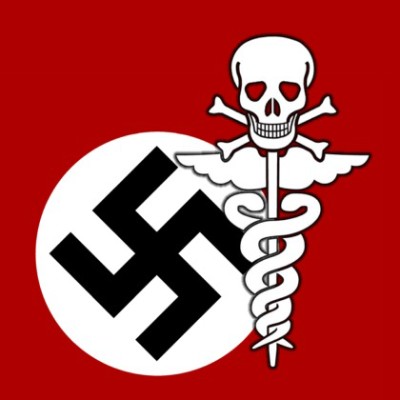Conventional Medicine
Children’s Psych Journal Won’t Retract Fraudulent Paxil Study
 Why wouldn’t a major journal retract a study that’s well-documented as fraudulent? Why allow the perpetrator to retire with honors? Paxil is supported by the Big Pharma juggernaut, extending corruption into formerly hallowed halls. Who cares about your child’s health? Surely not GSK!
Why wouldn’t a major journal retract a study that’s well-documented as fraudulent? Why allow the perpetrator to retire with honors? Paxil is supported by the Big Pharma juggernaut, extending corruption into formerly hallowed halls. Who cares about your child’s health? Surely not GSK!
by Heidi Stevenson
GlaxoSmithKline (GSK) pleaded guilty to a group of charges and agreed to pay a record 3 billion dollar fine. One of those charges was preparing, publishing, and distributing a fraudulent journal article on Paxil. You’d think that the publishing journal would do everything it could to distance itself from such a disaster, that they’d at least withdraw the article. That isn’t, though, what’s happened.
The Journal of the American Academy of Child and Adolescent Psychiatry (JAACAP) refuses to retract the Paxil study.
GlaxoSmithKline is a goose laying golden eggs.
You’d think that the university associated with the study’s lead author, Martin Keller, would want to distance itself from him. Again, though, you’d be wrong.
Brown University, where Keller was a professor of psychiatry, allowed him to retire and honored him as a professor emeritus one day before the GSK settlement. Apparently, they’re still satisfied that he deserves it.
Seriously, how much more do you need to know to realize that corruption in the form of Big Pharma money is rife in medical training and medical journals?
The study claimed that Paxil had met its endpoints and showed that it’s effective in treating depression in children under age 18. The fact is that it didn’t.
In 2003, Jon Jureidini, professor of psychiatry at the University of Adelaide in Australia, sent JAACAP a letter delineating problems with the study. JAACAP declined. In July 2012, they followed up with another request. It referred to GSK’s guilty plea, stating that GSK was:
… concealing the fact that Paxil failed to show efficacy on any of the primary endpoints in three controlled trials funded by GSK
and suggesting:
Given the clear misrepresentations present in the Keller et al (2001) article, it would be appropriate for the Journal to withdraw it immediately. Decisive action would benefit the psychiatric and general community, given that this paper inappropriately exaggerates the efficacy of paroxetine in young patients. It would also be beneficial to the Journal’s reputation.
It took JAACASS’s editor-in-chief, Andres Martin, six months to respond. That response indicated a lack of concern for their reputation. It was an outright refusal. He stated that the evaluation process was “quite lengthy”, though didn’t say how long or why. He said that the authors were “asked to respond to the questions and concerns raised by the settlement”, but he didn’t give any other detail. He didn’t say what the questions were or what the authors said in response. Nor did he explain why he apparently considered their responses satisfactory. He did state quite clearly:
[T]he Journal editors found no basis for retraction or other editorial action.
He also seemed to impugn Jon Jureidini’s character by implying that his interest was merely personal publicity, by then stating:
The inquiry is considered complete, and as such, your letter will not be published in the Journal.
Fraud apparently doesn’t matter to JAACASS. Publishing lies that led to the approval of a drug that is now killing people doesn’t matter. Brown University doesn’t care if someone operating under their seal of approval produced fraudulent studies that resulted in approval of a drug that doesn’t work.
A group of a couple dozen medical journal editors met a couple of years ago to discuss the growing recognition of fraudulent studies published in journals. Shortly after the GSK $3 billion fine, they published a list of suggestions to “elevate trust, transparency and integrity.” It’s named the Medical Publishing Insights and Practices (MPIP) initiative. It includes such concepts as:
- Making all trial results publicly available, whether positive or negative.
- Disclosure of ghostwriting.
- Reporting adverse events.
- Providing complete study protocol information.
Those are great ideas. However, MPIP was published after the GSK $3 billion fine, and it had absolutely no effect on either JAACASS or Brown U. Why do you suppose that was?
Could it have anything to do with the fact that MPIP is a Big Pharma front? Just take a look at any page on their website and scroll to the bottom. Included in the footer are the logos for some of the Biggest Pharma corporations in the world: Amgen, AstraZeneca, Bristol-Myers Squibb, Janssen, Merck, Pfizer, Takeda, and of course, GSK, the guilty party of that $3 billion fine and the fraudulent Paxil study under question here.
What it comes down to is that GSK accepted the fine as a cost of doing business and all their accomplices in the Paxil fraud are going along with it. GSK is a goose laying golden eggs. To universities, those golden eggs look like funding for pseudo science. To medical journals, golden eggs take the form of Big Pharma advertisements and article resales. That those solid gold eggs may be killing people? Apparently, that’s a minor problem. In the face of Big Pharma’s overly productive goose, both JAACASS and Brown(noser) have demonstrated their addiction to heavy metal eggs.
A drug that could destroy your child’s life and can’t provide any benefit is a small price to pay for JAACASS and Brownnoser. Your child’s health simply doesn’t factor into the equation of Big Pharma plus money equals corruption.
Sources:
- Efficacy of paroxetine in the treatment of adolescent major depression: a randomized, controlled trial, abstract
- Efficacy of paroxetine in the treatment of adolescent major depression: a randomized, controlled trial, full article
- Journal Refuses To Retract Controversial Paxil Study
- Controversial Paxil Study Author Retires From Brown
- Trying To Close A Credibility Gap In Research
- Whose Emperor Is Naked?
- GlaxoSmithKline to Plead Guilty and Pay $3 Billion to Resolve Fraud Allegations and Failure to Report Safety Data
Tagged American Academy of Child and Adolescent Psychiatry paroxetine, American Academy of Child and Adolescent Psychiatry paxil, big pharma, brown paroxetine, brown university paxil, gsk fine, gsk golden goose, gsk paxil, gsk paxil study fraud, jaacap paroxetine, junk science, martin keller paroxetine, martin keller paxil, martin keller retirement, paxil fraud, paxil fraud study, paxil study fraud, pharmaceutical drugs, pharmaceuticals, pseudo-science, pseudoscience













